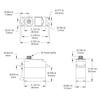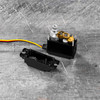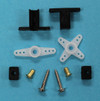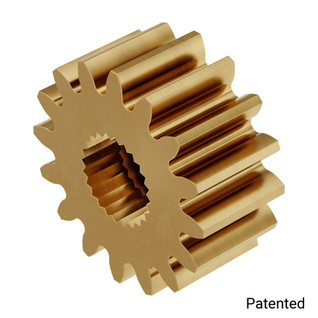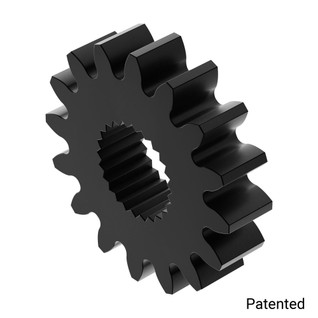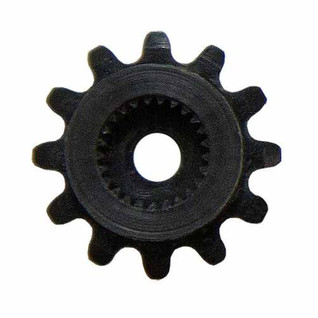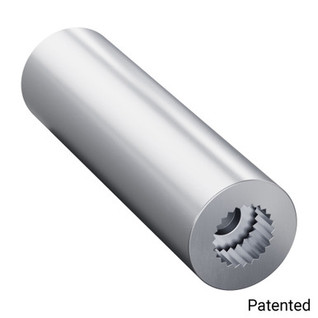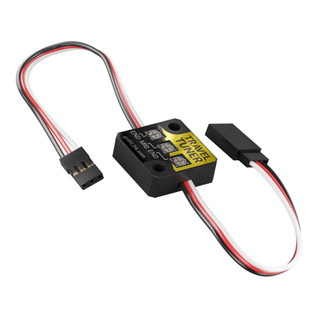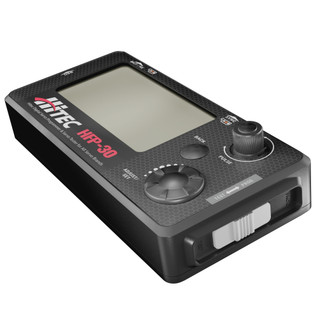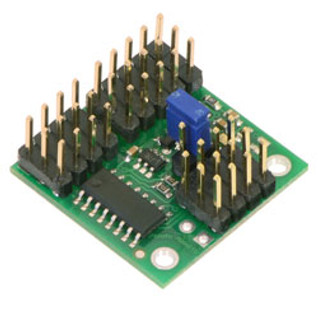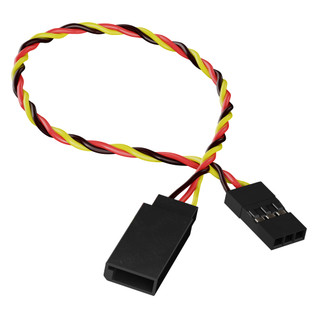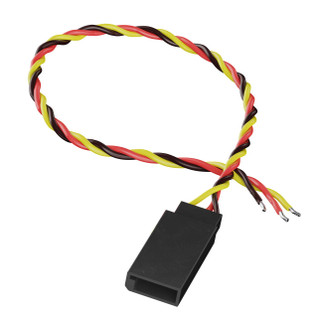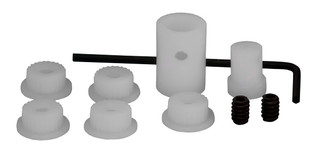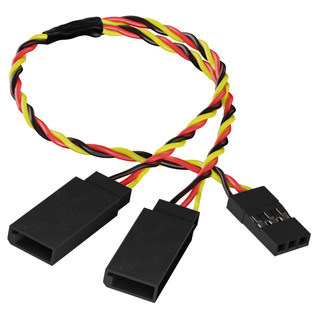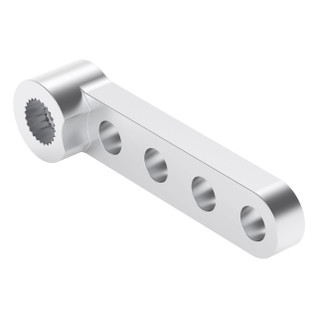HS-5087MH Servo
The HS-5087MH digital metal gear micro servo is the high voltage version of Hitec’s popular HS-5085MG. Built with a 3-pole ferrite motor and heavy-duty metal gears, this servo will bring maximum performance to your project and deliver extra power with a 2-cell 7.4V LiPo battery. Whether you are a beginner or an expert in the RC field, the HS-5087MH will provide the strength and capability you need and want in a micro servo. Drivers will find it the perfect steering servo for their 1/16th scale vehicles. Pilots with .15 to .40-size glow and electric aircraft will relish its power and reliability. Its precision and performance also make it perfect for 500-size helicopters.
How Far Will This Servo Rotate?
The answer to this question is partially dependent on what you are using to control the servo.
Click for a quick video explanation.
Stock:
With an Average Radio System:
80°
Your average transmitter and receiver will output a relatively narrow PWM signal range.
Radio System + Travel Tuner:
133°
Adding a Servo Travel Tuner to your radio system setup will allow you to achieve wide PWM signal ranges.
Wide Signal Controllers:
133°
Controllers such as the Servo Commander, Arduinos, and Raspberry Pi servo hats can usually send a wide signal.
Reprogrammed:
Whether you purchase the reprogrammed option or get a servo programmer and do it yourself, a reprogrammed version of this servo will be able to achieve greater travel than it can in stock form.
With an Average Radio System:
106°
Your average transmitter and receiver will output a relatively narrow PWM signal range.
Radio System + Travel Tuner:
177°
Adding a Servo Travel Tuner to your radio system setup will allow you to achieve wide PWM signal ranges.
Wide Signal Controllers:
177°
Controllers such as the Servo Commander, Arduinos, and Raspberry Pi servo hats can usually send a wide signal.
Programable Features:
- Dead Band Width
- Direction of Rotation
- Speed of Rotation (slower)
- End Points (up to 120º)
- Neutral Points
- Fail Safe On/Off
- Fail Safe Points
Specs
| Output Shaft Style | C24T Spline |
|---|---|
| Voltage Range | 6.0V - 7.4V |
| No-Load Speed (7.4V) | 0.13sec/60° |
| No-Load Speed (6.0V) | 0.17sec/60° |
| Stall Torque (4.8V) | 50oz-in. (3.6kg.cm) |
| Stall Torque (6.0V) | 60oz-in. (4.3kg.cm) |
| Max PWM Signal Range | 750-2250μsec |
| Travel per µs (Stock) | .089°/μsec |
| Travel per µs (Reprogrammed) | .118°/μsec |
| Max Rotation (Stock) | 133° |
| Max Rotation (Reprogrammed) | 177° |
| Pulse Amplitude | 3-5V |
| Operating Temperature | -20°C to +60°C |
| Continuous Rotation Modifiable | Yes |
| Direction w/ Increasing PWM Signal | Clockwise |
| Deadband Width | 2µs |
| Motor Type | 3 Pole Ferrite |
| Feedback Style | 5KΩ Potentiometer |
| Output Shaft Support | Top Ball Bearing |
| Gear Material | Metal |
| Wire Length | 7" (178mm) |
| Weight | 0.77oz (21.9g) |
| Wire Gauge | 28AWG |
| Servo Size | Micro |


